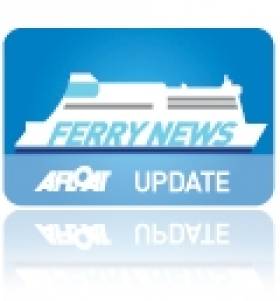Displaying items by tag: St.PetersbergStockholm
Irish Continental Group Record 61% Rise in Profit
The Irish Continental Group (ICG) which is the parent company of Irish Ferries, has warned of 'uncertainty' in 2011 due to higher fuel costs and the effects of the austerity measures in both the Irish and UK economies.
ICG secured a 61% increase in pretax profits in 2010 following an increase in passenger numbers and the sale of their MV Pride of Bilbao to St. Peter Line (click here) after a long-term charter to P&O Ferries. The 37,583 gross tonnes cruiseferry is to open a new second route for the Baltic Sea operator between St. Petersburg and Stockholm, starting next month.
To read more about ICG's end of year results, click the report in today's Irish Times.
























































